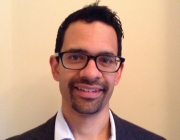非常抱歉,
你要访问的页面不存在,
非常抱歉,
你要访问的页面不存在,
非常抱歉,
你要访问的页面不存在,
验证码:

职称:Mehra Family Professor of South Asian Studies and Professor of History
所属学校:Harvard University
所属院系:Department of South Asian Studies
所属专业:South Asian Studies
联系方式:
Sunil Amrith is a historian of modern South Asia. His research is on the trans-regional movement of people, ideas, and institutions, and has focused most recently on the Bay of Bengal as a region connecting South and Southeast Asia. Amrith's areas of particular interest include the history of migration, environmental history, and the history of public health. Amrith's most recent book, Crossing the Bay of Bengal: The Furies of Nature and the Fortunes of Migrants (Harvard University Press, 2013) was awarded the American Historical Association's John F. Richards Prize in South Asian History in 2014. He is also the author of Migration and Diaspora in Modern Asia (Cambridge University Press, 2011), and Decolonizing International Health: South and Southeast Asia, 1930-1965 (Palgrave, 2006), as well as articles in journals including the American Historical Review, Past and Present, and Economic and Political Weekly. In 2011, Amrith received a Starting Grant from the European Research Council to support a project on the environmental history of coastal India. He is currently writing a history of water and environmental change in South Asia. Amrith is a member of the Executive Committee of the Joint Center for History and Economics at Harvard, and also has a long association with the Joint Centre for History and Economics in Cambridge. Amrith sits on the editorial boards of Modern Asian Studies, History Workshop Journal, and Past and Present. He is series editor, with Tim Harper and Engseng Ho, of the Cambridge University Press book series, Asian Connections; and editor, with Sugata Bose and Isabel Hofmeyr, of the second volume of the new Cambridge History of the Indian Ocean (to be published in 2019). Sunil Amrith grew up in Singapore, and received his undergraduate and graduate degrees from the University of Cambridge, where he was also a research fellow of Trinity College. Before coming to Harvard, he spent nine years teaching at Birkbeck College, University of London.
Sunil Amrith is a historian of modern South Asia. His research is on the trans-regional movement of people, ideas, and institutions, and has focused most recently on the Bay of Bengal as a region connecting South and Southeast Asia. Amrith's areas of particular interest include the history of migration, environmental history, and the history of public health. Amrith's most recent book, Crossing the Bay of Bengal: The Furies of Nature and the Fortunes of Migrants (Harvard University Press, 2013) was awarded the American Historical Association's John F. Richards Prize in South Asian History in 2014. He is also the author of Migration and Diaspora in Modern Asia (Cambridge University Press, 2011), and Decolonizing International Health: South and Southeast Asia, 1930-1965 (Palgrave, 2006), as well as articles in journals including the American Historical Review, Past and Present, and Economic and Political Weekly. In 2011, Amrith received a Starting Grant from the European Research Council to support a project on the environmental history of coastal India. He is currently writing a history of water and environmental change in South Asia. Amrith is a member of the Executive Committee of the Joint Center for History and Economics at Harvard, and also has a long association with the Joint Centre for History and Economics in Cambridge. Amrith sits on the editorial boards of Modern Asian Studies, History Workshop Journal, and Past and Present. He is series editor, with Tim Harper and Engseng Ho, of the Cambridge University Press book series, Asian Connections; and editor, with Sugata Bose and Isabel Hofmeyr, of the second volume of the new Cambridge History of the Indian Ocean (to be published in 2019). Sunil Amrith grew up in Singapore, and received his undergraduate and graduate degrees from the University of Cambridge, where he was also a research fellow of Trinity College. Before coming to Harvard, he spent nine years teaching at Birkbeck College, University of London.